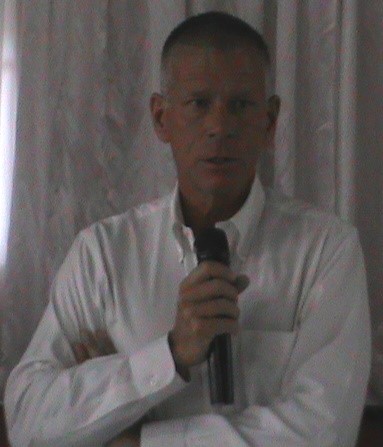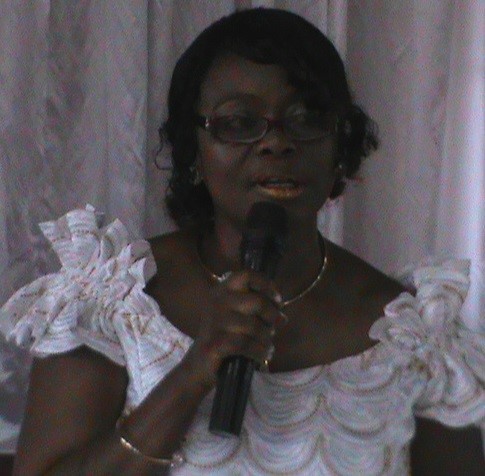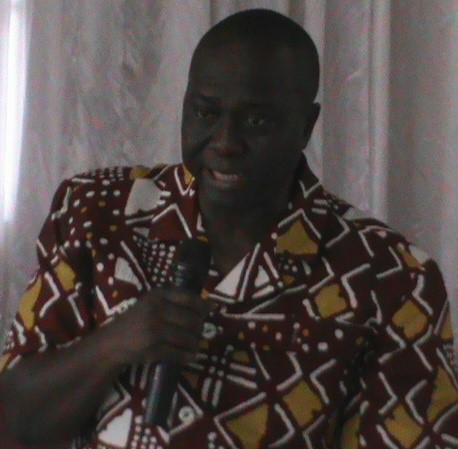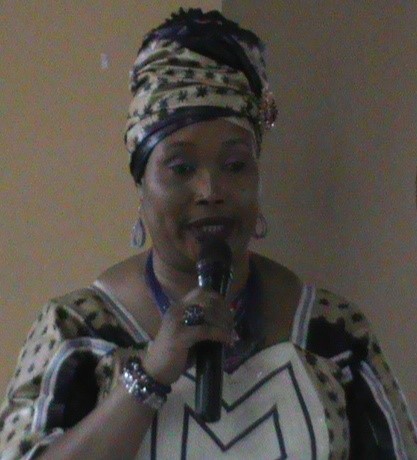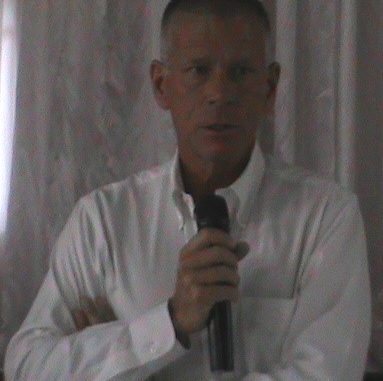
By Jonathan Abass Kamara
The World Health Organization Country Representative, Dr. Anders Nordstrom has commended the Ministry of Health and Sanitation for ongoing strides in ensuring that Infection Prevention and Control practices are implemented in all health facilities across the country.
WHO Country Representative, Dr. Anders Nordstrom
Addressing a joint WHO and Ministry of Health and Sanitation farewell meeting of IPC Officers from various countries who were in Sierra Leone at the height of the Ebola crisis at a ceremony held at the Vanilla Complex in Aberdeen Freetown on Friday December 9, 2016, Dr. Nordstrom expressed the need for National IPC Plan that would be recognized by the government and sustained for the future.
He told the meeting that from WHO perspective they are committed to continue supporting the IPC National Coordinator and the Health Ministry in the area of coordination, monitoring and supportive supervision.
Dr. Nordstrom observed that there is much more work to be done in the districts on management and health information system to ensure strong and credible system on indices, data analysis and reporting.
He noted that with good IPC measures there will be quality services on health care and emergency obstetric care that would help reduce maternal mortality and stressed the need for research and training in building a resilient system.
He said the Ebola outbreak and its elimination recognizes that WHO, the Health Ministry, the government and people of Sierra Leone are one people living together, adding that developing a strategy with the guidelines we now have as a country would help protect health workers, patients and communities.
Paying farewell tribute to the IPC Officers, the Chief Nursing and Midwifery Officer, Matron Hossinatu Koroma described them as honourable catalyst in IPC looking at the huge achievement the few challenges that have characterized into a success story.
Chief Nursing and Midwifery Officer, Matron Hossinatu Koroma
She underscored the importance of taking a look of where we were before, where we are at the moment, and where we are heading as a nation for the future of IPC in our health facilities.
The Chief Nursing and Midwifery Officer reiterated that patient and health workers safety is a concern for a start in our health facilities and other work places, expressing the urgency to put in place the appropriate structures.
She said nursing and IPC are synonymous, and must be given the attention they deserve to make the institution more viable.
Matron Koroma described the partnership with Centre for Disease Control (CDC) USA and WHO as laudable, and the departure of the outgoing WHO IPC Officer as a sad moment, hoping for a smooth sailing transition as they leave the shores of Sierra Leone.
The Deputy Chief Medical Officer II, Dr. Amara Jambai underscored the importance of coming up with a strategy that will be more operational with community participation.
Deputy Chief Medical Officer II, Dr. Amara Jambai
He lauded WHO for their support and reiterated the Ministry’s commitment to ensure that IPC is made a professional path way with the pre-requisite experience gained from the Ebola upsurge.
The IPC National Coordinator, Nana Sesay-Kamara described the IPC Focal Persons as the backbone for the success of the implementation of IPC in the various health facilities.
IPC National Coordinator, Nana Sesay-Kamara
She told her audience that the birth of IPC started from several meetings at the Emergency Operation Centre (EOC) and the National Ebola Response Centre (NERC), adding that the mayhem caused by the Ebola crisis ignited the current strength for a sustainable IPC in Sierra Leone.
Commenting on the challenges, Madam Nana Sesay-Kamara identified lack of infrastructure and career path way for IPC staff among other key problems.
On the achievements, Madam Sesay-Kamara said there was strong collaboration and trust, describing the system as a core value for winning progress.
She outlined the harmonization of IPC Plans, the National IPC Action Plan for June 2016-2019, review of the National IPC/WASH Assessment tools for capacity building of IPC Officers, an increased on the job training of community health workers, review and update of the 10-24 months Presidential Recovery Priorities, adding that hand hygiene has improved in 25 government hospitals, and making impact.
Other highlights include Presentation of certificates to the outgoing IPC Officers.

